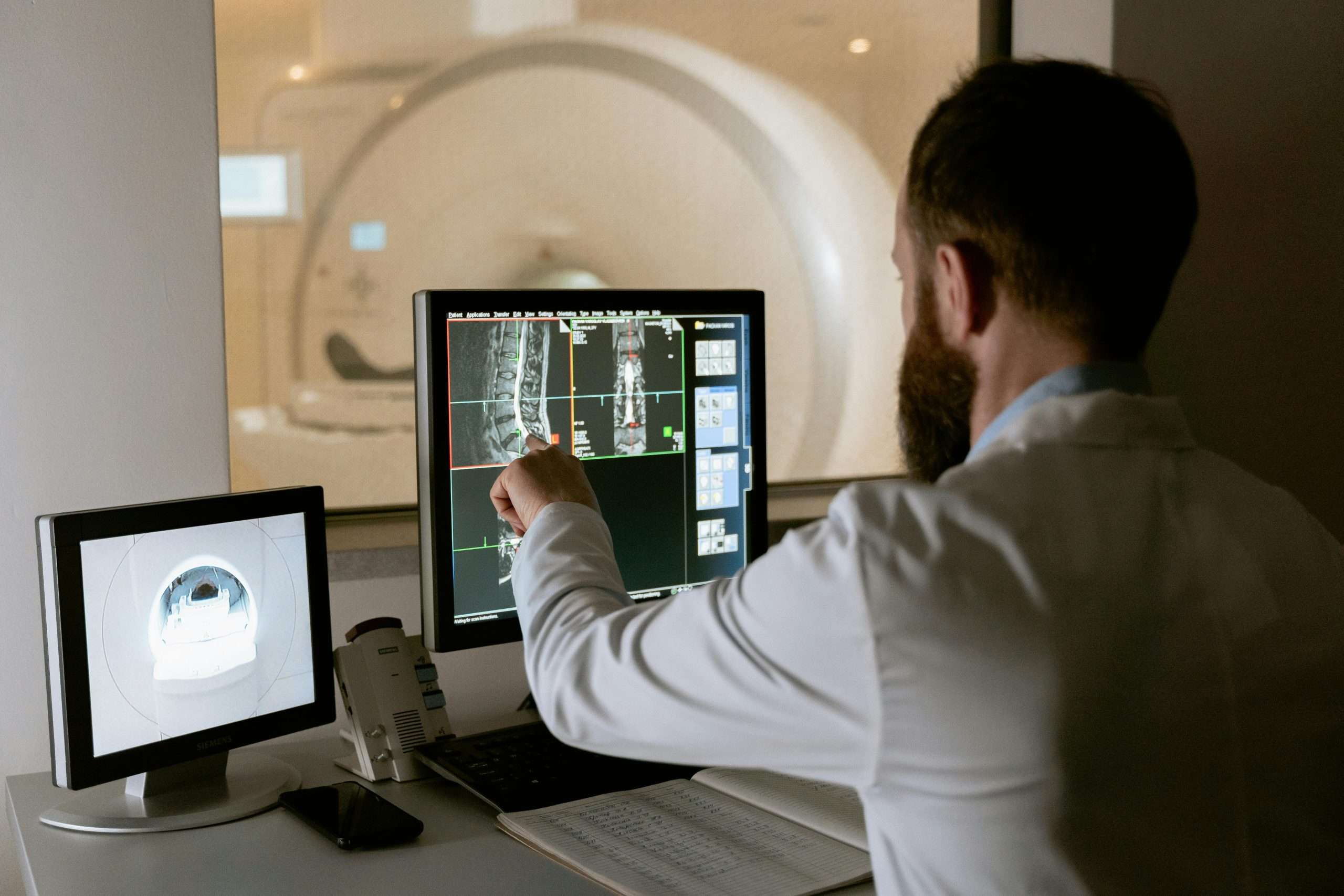In the rapidly evolving landscape of healthcare, technology plays a pivotal role in transforming how services are delivered and managed. Healthcare providers today face a multitude of challenges, from managing extensive patient data to ensuring efficient treatment processes and seamless communication across departments. Addressing these challenges effectively is not merely about upgrading hardware or software-it’s about integrating innovative healthcare technology solutions that can lead to substantial improvements in patient care and operational efficiencies.

The Need for Technology in Healthcare Management
The healthcare sector, by its very nature, generates vast amounts of data. Yet, one of the persistent challenges is the fragmentation of this data across multiple systems. Patient records, treatment histories, and diagnostic reports often reside in disparate systems, making efficient data retrieval and management problematic. This fragmentation can lead to delays in patient care, errors in medication administration, and inefficiencies in the use of medical resources.
Moreover, the traditional methods of managing healthcare facilities are becoming increasingly inadequate in coping with the rising demand for healthcare services. The Covid-19 pandemic has starkly highlighted the need for healthcare systems to be more responsive and adaptable. Technology in healthcare is not just an option but a necessity to enhance operational capabilities, improve the speed and accuracy of patient services, streamline processes such as patient transfer, and manage the ever-growing healthcare demands more effectively.
Note: This step ensures that chosen technologies align with specific needs, such as improving patient care, enhancing data security, or streamlining administrative processes. Partnering with experienced providers of healthcare software development services can further ensure that these technologies are tailored to the organization’s workflows, compliance requirements, and patient-care goals.
Understanding Application Integration in Healthcare
A key technological strategy for overcoming these hurdles is application integration. In the context of healthcare, one might wonder, what is application integration going to do to streamline management? Application integration is about creating a unified system where different software applications can communicate and work together seamlessly in a healthcare facility. This integration allows for a centralized view of patient data, which is crucial for effective diagnosis and treatment.
The benefits of application integration in healthcare are profound. It allows health records to be updated in real time, ensuring that every member of a patient’s care team is on the same page, which is critical in emergency situations where every second counts. It also minimizes administrative burdens by automating tasks such as scheduling, billing, and compliance reporting, thus allowing medical staff to focus more on patient care than on paperwork.
Moreover, application integration enhances the security of sensitive medical data. With a centralized system, healthcare providers can implement more robust security measures, monitor data access more effectively, and ensure compliance with regulations like HIPAA (Health Insurance Portability and Accountability Act) in the United States. By integrating applications, healthcare institutions can achieve a balance between accessibility and security, ensuring that patient data is protected against unauthorized access while being readily available to authorized healthcare professionals. It is essential to thoroughly research and select software that complies with HIPAA regulations to ensure the secure processing of personal health data.
Key Technologies Revolutionizing Healthcare Management
Several technologies stand out for their potential to revolutionize healthcare management:
- Electronic Health Records (EHRs): EHRs are at the forefront of improving healthcare management. They replace outdated paper records, making patient data digital, searchable, and accessible from virtually anywhere. This accessibility improves the coordination and quality of care and supports healthcare analytics for better decision-making.
- Telemedicine: Telemedicine has emerged as a major transformation in the way healthcare is delivered. This technology enables patients to meet with doctors through video calls, minimizing the necessity for in-person consultations. This is particularly beneficial for individuals living in remote locations or those facing difficulties with mobility.
- Artificial Intelligence (AI): AI in healthcare is used to diagnose diseases more accurately, predict patient outcomes, and personalize patient treatment plans. AI algorithms can analyze vast datasets to identify patterns that would be impossible for a human to discern, supporting both diagnostic and prognostic activities in healthcare settings.
Implementing Technology Solutions in Healthcare
Implementing technological solutions within the healthcare sector requires a thoughtful and structured approach. The process begins with a comprehensive evaluation of existing systems and workflows to identify areas that stand to benefit the most from digital enhancement. This step ensures that chosen technologies align with specific needs, such as improving patient care, enhancing data security, or streamlining administrative processes.
Once the areas of need are identified, the next step involves selecting appropriate technologies. This selection should be based on robustness, scalability, ease of integration, and compliance with health regulations. Due diligence is crucial to ensure that the technology providers are reputable and that their solutions have a proven track record in healthcare settings.
The implementation phase should be phased and managed carefully. It often starts with pilot programs that test the technology on a small scale to gauge its effectiveness and iron out any issues before a full rollout. During this phase, continuous feedback from end-users, such as doctors, nurses, and administrative staff, is invaluable. Their insights can help fine-tune the system to better meet the practical needs of healthcare providers.
Training is another critical component of the implementation process. Comprehensive training programs are essential to ensure that all users are proficient in using new technologies. These programs should be inclusive, catering to varying levels of tech-savvy among staff, and should be ongoing to cover any updates or new features added over time.
Overcoming Challenges in Digital Transformation
While the benefits of integrating technology in healthcare are significant, several challenges can impede its successful adoption. Resistance to change is a common issue, particularly among staff who are accustomed to traditional methods and may be apprehensive about new technologies. To overcome this, leadership must foster a culture that is open to innovation, emphasizing the benefits and supporting staff throughout the transition. Clear communication and involvement of staff in the decision-making process can also help mitigate resistance.
Budget constraints are another significant challenge, especially for public health institutions or small practices. Leaders must prioritize investments in technology that offer the highest return on investment. In some cases, seeking partnerships or grants specifically designed to support technological advancements in healthcare can provide necessary funding without straining existing resources.
Regulatory compliance is also a critical concern, as healthcare is one of the most regulated industries globally. Ensuring that new technologies comply with laws regarding patient privacy and data security is essential. This requires working closely with legal experts and IT professionals to implement systems that not only improve efficiency but also adhere strictly to regulatory standards.

Conclusion
The integration of technology in healthcare management is not just a trend but a fundamental shift towards more efficient, precise, and patient-centered care. As healthcare systems around the world continue to face increasing demands, the strategic adoption of digital tools becomes essential. By carefully planning and implementing technology solutions, and addressing challenges head-on, healthcare providers can significantly enhance their operations and improve outcomes for patients.
Leaders in healthcare must, therefore, continue to champion digital transformation, recognizing that the journey is ongoing and dynamic. With a commitment to technological advancement and a focus on patient care, the future of healthcare looks promising, marked by continuous improvement and innovation.



